



My Cause !

"MY STORY"
"The Great Sign In Heaven"
About the Eclips On Sept. 26. 2017
Go to my favorite movies.
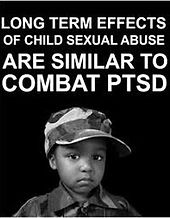
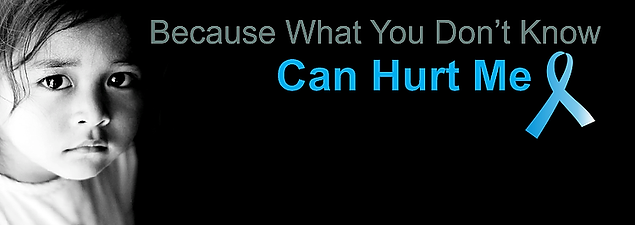
SUFFER LITTLE CHILDREN
CHEATED OUT OF CHILDHOOD
Child Sexual Abuse

When a perpetrator intentionally harms a minor physically, psychologically, sexually, or by acts of neglect, the crime is known as child abuse. This page focuses specifically on child sexual abuse and the warning signs that this crime may be occurring.

What is Child Sexual Abuse?
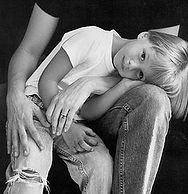
Child sexual abuse is a form of child abuse that includes sexual activity with a minor. A child cannot consent to any form of sexual activity, period. When a perpetrator engages with a child this way, they are committing a crime that can have lasting effects on the victim for years. Child sexual abuse does not need to include physical contact between a perpetrator and a child. Some forms of child sexual abuse include:
* Obscene phone calls, text messages, or digital interaction * Fondling * Exhibitionism, or exposing oneself to a minor * Masturbation in the presence of a minor or forcing the minor to masturbate * Intercourse * Sex of any kind with a minor, including vaginal, oral, or anal * Producing, owning, or sharing pornographic images or movies of children * Sex trafficking * Any other sexual conduct that is harmful to a child's mental, emotional, or physical welfare
What do Perpetrators of Child Sexual Abuse look like?
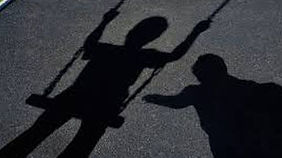
The majority of perpetrators are someone the child or family knows. As many as 93% of victims under the age of 18 know the abuser. A perpetrator does not have to be an adult to harm a child. They can have any relationship to the child including an older sibling or playmate, family member, a teacher, a coach or instructor, a caretaker, or the parent of another child.
According to a servey held, 1 in 6, “[Child] sexual abuse is the result of abusive behavior that takes advantage of a child’s vulnerability and is in no way related to the sexual orientation of the abusive person.”
Abusers can manipulate victims to stay quiet about the sexual abuse using a number of different tactics. Often an abuser will use their position of power over the victim to coerce or intimidate the child. They might tell the child that the activity is normal or that they enjoyed it. An abuser may make threats if the child refuses to participate or plans to tell another adult. Child sexual abuse is not only a physical violation; it is a violation of trust and/or authority.
How can Children be Protect from Sexual Abuse?

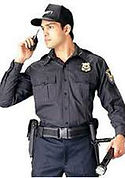
The children are now going out to play. Bobby has to use it, I am sending a guard with him, Suzzy is on the swing and James is in the sand box. A stranger is walking this way, I've got all the children behind me holding hands and I have my gun out and ready. OK everyone, he has passed by, he is gone the children are back playing now and we have our guns back in our hosters, safetys on and secure.
We are leaving the park now and heading home . . .
We can't hire body guards for our children to follow behind them every step they take. That would soon get old, and besides, it would cost a small fourtain. So what can we do to protect them? A big part of protecting your child is about creating a dialogue. Read more to learn about creating this dialogue and keeping your child safe.
Talk To Your Children . . .
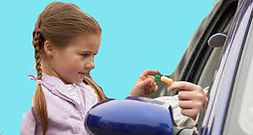
Some say, "If You Suspect A Child is being hurt or molested, do this or that." I say, "Don't put off talking to children until you think something happed or something does happen, talk to them even before they start school. Talk to them about talking to strangers and going up to strange cars. Explain to them about bad people and how they take children away from their moms and dads.
Reports of coaches, youth leaders, teachers, etc. taking advantage of children's trust have caused all of us to worry about our children's safety and wonder what we should be doing to safeguard them from predators.
Parents of school-age children are talking to them about the importance of speaking up whenever anything feels uncomfortable. Talking to older children about sexual assault is appropriate for them.
Preschool Children
However, dealing with the issue of self-protection with preschool children is something totally different and we want to caution parents against scaring or confusing very young children with lectures about not speaking to strangers or protecting themselves against improper advances from anyone other than Mommy, Daddy or grandparents.
Talking to little children about protecting themselves can be utterly confusing to them -- scary, upsetting, or even cause them to overreact in many ways -- they can become afraid of going to sleep, of the dark, of speaking to anyone. They can become overly excited and engage in mutual sexual play or pretend to go looking for imaginary molesters, which shows that they are acting out what they are trying to understand.
More on talking to Kids about Sexual Predators

Sex offenders: What should you tell your children? (Polly Klaas Foundation)
2. How to talk to your kids about sexual offenders (Oregon Public Broadcasting)
3. How do you talk to your kids about sexual predators? (Children's Medical Center)
There are many things parents can do to help their children move toward being able to resist the advances of people who want to take advantage of them.
Needing to protect oneself is a very big responsibility that young children cannot possibly take on by themselves. We must be with them at all times so that they are never in any situation where they are not being cared for by family members or by someone whom we have checked out thoroughly and has been found to be completely trustworthy.
However, there are many things parents can do to help their children move toward being able to resist the advances of people who want to take advantage of them. Children need a long time to achieve mastery of the care and protection of their bodies and they learn this by observing the things we parents do every day.
For example, they observe how we behave with strangers, who we talk to and who we avoid. A young child goes from being totally cared for by his parents to wanting to do things for himself: feeding, washing, toileting, and dressing himself and parents welcome this evidence that he is growing up and wants privacy and control over his own body.Here is what Barbara Streeter, education director of the Hanna Perkins School, says about helping children protect themselves:
"What protects a child best is a sense of self-worth, an ability to know when he is being treated disrespectfully, and a sense that he has the right and ability to defend himself. To help a child develop those attributes and abilities, it is important to:
* always treat the child with respect, physically and emotionally.
* listen to and observe what he likes or dislikes and respond accordingly.
* protect her from intrusions of other adults (unwanted kisses, hugs, tickles, jokes, teases, insensitive doctors, salesmen).
* support a child's "no" to others when spoken or shown.
* assist a child in finding ways to defend himself when playmates and siblings are unkind in any way.
* show respect for and support a child's need for privacy and control over what gets done to his body (eating, toileting, dressing, administering medications).
* avoid activities that make a child feel helpless (for example, adults overpowering a child by showing off their physical strength; excessive tickling).
* assist children in developing respect for "personal space."carefully assess any person a child is being left with and seriously consider any doubts you or the child might have.
* listen to what children have to say -- let them know that we don't automatically assume that people in authority are right and they are wrong..
Children learn how to protect themselves, not by lectures or admonitions from us, but by observing the way their parents respect them and take care of them. It's a big job, but no one ever said being a parent was easy. We salute you and wish you well in doing that big job.
Satan's angels lurk around every corner watching and looking for anyone they can trap in their snare. Young, old, boy, girl, man or woman, it makes no difference to them. If they can find a way to destroy a life they will. They specialize in braking up families.
One such angel is called a Pedophilia. He or she doesn’t have any markings or have horns sticking out their head, or a bright red tell and carrying a pitchfork. They are nice clean cut people with a nice smile and friendly voice. They could be your neighbor, a friend, a teacher or even your child's football coach or family member. It could even be a Sunday School teacher or minister. Next to a broken home, sexual abuse robs a child of their childhood faster than anything I know.
When a child is sexually abused, it doesn't go awas like a bad dream, it is like a soldier with PTSD. It affects them for the rest of their life.
Regardless of a child's home life, sexual abuse can happen at any time, place or in any situation.
According to the National Center for Victims of Crime & Studies by David Finkelhor, Director of the Crimes Against Children Research Center, show that:
a - 1 in 5 girls and 1 in 20 boys is a victim of child sexual abuse;
b - Self-report studies show that 20% of adult females and 5-10% of adult males recall a
childhood sexual assault or sexual abuse incident;
c - During a one-year period in the U.S., 16% of youth ages 14 to 17 had been sexually victimized;
d - Over the course of their lifetime, 28% of U.S. youth ages 14 to 17 had been sexually victimized;
e - Children are most vulnerable to CSA between the ages of 7 and 13.
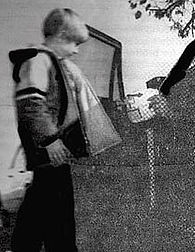
My son, John Jr. Walking up to a strange car for candy. (for my book)
Children need to be warned and told what to do when strangers come around. 90% of thetime it isn't strangers who molest children, it is someone they may know. It could be aneighbor, a friend of the family or it could be someone we don't like to think about, afamily member.
Who Are Strangers?
When you're walking home from school, a person in a car pulls up and asks you for directions. At the park, someone says he needs you to help look for his lost puppy. These people may seem friendly, but no matter what they say to you, they have one thing in common: They're strangers.
Say you are at a family reunion or family gathering and there are people there you don't know. Your mom or dad introduses them to you as your uncle, cusen or aunt, are they still a stranger to you? Yes. You still don't really know them. You just met them. Until you really now them treat them as a stranger. You may know them as a realitive, but you don't know anything about them.
Most strangers aren't dangerous and wouldn't do anything to hurt kids. Unfortunately, though, some strangers can be dangerous, and it's impossible to tell who's OK and who's not. A dangerous person doesn't necessarily look scary or mean — the person might look nice.
That's why it's important to follow these safety rules all the time;
1. Make Your Whereabouts Known
The adult who's taking care of you needs to know where you are at all times. That means telling your mom or dad, grandmother, babysitter, or whoever is keeping an eye on you where you are and when you'll be coming home.
2. Stick With a Friend
It's more fun and safer to do things with friends. Take along a buddy when you walk to school, bike around the park, or go to the store. Traveling with a friend whenever you can is a good idea, and traveling with a bunch of kids is even better.
3. Pick Out Safe Spots
What are safe spots? Safe spots are places where you can stop if you need help, like the houses of kids you know, your parents' friends' houses, stores, restaurants, police stations, libraries, and fire departments. When you're walking or riding your bike, make a mental note of the safe spots along your route. That way, you'll know where they are in case you ever need one.
4. Avoid Places That Aren't Safe
Be sure to keep away from isolated areas. These are places where no one is around, like the woods or small, dark streets.
Let Grown-Ups (and Only Grown-Ups)
Help Strangers It's nice to help people. But remember: Strangers should ask adults, not kids, for help.
Stay Away From Strange Cars
If a stranger pulls up in a car and offers you a ride, don't get in, if they need help with something, let them ask an adult.
Warning Signs of Sexual Abuse
1. Difficulty walking or sittingBloody, torn, or stained underclothes
2. Bleeding, bruises, or swelling in genital area
3. Pain, itching, or burning in genital area
4. Frequent urinary or yeast infections
5. Sexually Transmitted Infections, especially if under 14 years old
6. Pregnancy, especially if under 14 years old
Behavioral Signs
1. Reports sexual abuse
2. Inappropriate sexual knowledge
3. Inappropriate sexual behavior
4. Nightmares or bed-wetting
5. Large weight changes/major changes in appetite
6. Suicide attempts or self-harming, especially in adolescents
7. Shrinks away or seems threatened by physical contact
8. Runs away
9. Overly protective and concerned for siblings, assumes a caretaker role
10. Post-Traumatic Stress Disorder or Rape Trauma Syndrome symptoms
What is considered child sexual abuse?
Child sexual abuse includes touching and non-touching activity. Some examples of touching activity include:
a - touching a child's genitals or private parts for sexual pleasure
b - making a child touch someone else's genitals, play sexual games or have sex putting objects or body parts (like fingers, tongue or penis) inside the vagina, in the mouth or in the anus of a child for sexual pleasure.
Some examples of non-touching activity include:
a - showing pornography to a child
b - deliberately exposing an adult's genitals to a child
c - photographing a child in sexual poses
d - encouraging a child to watch or hear sexual acts
e - inappropriately watching a child undress or use the bathroom
As well as the activities described above, there is also the serious and growing problem of people making and downloading sexual images of children on the Internet. To view child abuse images is to participate in the abuse of a child. Those who do so may also be abusing children they know. People who look at this material need help to prevent their behaviour from becoming even more serious.
Age appropriate sexual behaviour
We all know that children pass through different stages of development as they grow, and that their awareness and curiosity about sexual matters change as they pass from infancy into childhood and then through puberty to adolescence. Each child is an individual and will develop in his or her own way. However, there is a generally accepted range of behaviours linked to a child’s age and developmental stage. Sometimes these will involve some exploration with other children of a similar age. It can be difficult to tell the difference between age appropriate sexual exploration and warning signs of harmful behaviour. Occasionally we may need to explain to children why we would prefer them not to continue with a particular behaviour.
This is a chance to talk with them about keeping themselves and others safe and to let them know that you are someone who will listen. Disabled children may develop at different rates, depending on the nature of their disability, and they can be more vulnerable to abuse. Children with learning disabilities, for example, may behave sexually in ways that are out of step with their age. Particular care may be needed in educating such children to understand their sexual development and to ensure that they can communicate effectively about any worries they have.
It is important to recognise that while people from different backgrounds have different expectations about what is acceptable behaviour in children, sexual abuse happens across all races and cultures. Remember that each child develops at his or her own pace and not every child will show the behaviours described below. If you have any worries or questions about a child you know, talk to someone about it. Your health visitor, GP or child’s teacher may be able to help, or you could ring the Stop it Now! Helpline on 0808 1000 900. For more information on your children and sexual activity click HERE.

Come to me, all you who are weary and burdened, and I will give you rest.
Breaking Through The Veil Of Shame
Silent, uncontrollable sobbing ... Bruises and beatings ... Shoving and slapping ... Children so traumatized they're afraid of their own shadows. And the endless string of lies ... "He fell down." "It was an accident." But child abuse is no accident. It violates God's fundamental purpose for man. And parents and children around the world find themselves ensnared in its cruel clutches.
In America alone, reported cases of child abuse exceed 1 million each year, and some experts say the actual number of abuse victims may be far greater.

Types of child abuse include physical abuse, emotional abuse, sexual abuse and neglect. Affected children often suffer physical injuries, emotional scars, malnutrition, and sadly, even death. Child abuse also spiritually cripples precious young lives. These children may struggle to accept God as their loving heavenly Father (Matt. 18:5-6). Other family members often suffer silently. Even the offender suffers, increasingly bound by the shame and secrecy of the addictive behavior.
But as many have already discovered, there is hope. The vicious cycle of abuse can be broken, especially as we present our wounds to the Gentle Healer, Jesus Christ.
God's View of Abuse
The Bible gives much practical advise on the subject of child-rearing. "Train up a child in the way he should go, even when he is old he will not depart from it," says the writer of Proverbs ( 22:6). Parents are clearly cautioned to take steps to correct foolishness which "is bound up in the heart of a child" ( Prov. 22:15).
Parental discipline is essential, but some parents view these Scriptures as giving absolute control over their children. This is not true. God's Word should never be used as a license for abuse. Parents need to discipline their children, but they must keep their own emotions and actions in check ( Eph. 6:4, Col. 3:21). In God's eyes there simply is no justification for abuse.
Finding Help
If you are trapped in the unrelenting cycle and sin of child abuse, don't leave this webpage until you have made a commitment before the Lord to break this destructive pattern. It won't be easy, but it could be a matter of life and death. Understand that you are not alone. Jesus knows you better that you could ever know yourself (see Psalm 139), and He is willing and able to help ( Heb. 4:15-16). But you need to ask for His grace to share honestly your struggle with a trusted brother or sister in Christ, or with your pastor. Follow these steps to get help.1. Acknowledge the problem. To receive healing, admit that you have a problem. Once you've broken the silence and confessed your sin of abuse, God's grace and forgiveness can begin to restore you ( Psalm 32:3-7). 2. Acknowledge your weakness. Allow God to minister in your weakness, for in it He can make you strong (2 Cor. 12:9, Heb. 1:32-34). 3. Take action. Pray with other believers and share your struggles, seeking the help of pastors, or other appropriate counselors ( Prov. 15:22, James 5:16)
If You've Been Abused
If you have been the victim of abuse, you need to know that God has not abandoned you. He is "intimately acquainted" with all your ways ( Psalm 139:3). He knows your pain, and He has a plan for complete healing and restoration for your life. Consider these simple steps as you seek the Father's healing.
1. Face the abuse. The shame associated with abuse is unbearable. You can hide the pain for a season, but eventually, the wounds will surface. But take comfort, for God knows the horror that you have unjustly endured (see Psalm 139, Matt. 10:29-31). Ask God for the strength to face your nightmare of abuse.
2. Forgive and release. As difficult as it may sound, you need to begin by forgiving the perpetrator for his or her actions against you. It may seem impossible, but the consequences of unforgiveness can produce even further destruction (2 Samuel 13:23-29). Instead, ask God to give you the grace you need to forgive (1 Samuel 1:15-17, Psalm 42:3-4, Psalm 62:8).
3. Seek shelter. If you are still in an abusive situation, immediately seek shelter. Consider turning to family members, your church family, or perhaps authorities if necessary. Ultimately, rest in God's shelter. Turn to His Word (the Psalms offer much encouragement for the downcast).
4. Move on. Once you have taken steps to forgive, ask God to help you pick up the pieces, and seek again the abundant life in Jesus that He has for you ( John 10:10). Press on and leave the past to God ( Phil. 3:13-14).
As You Pr
Children, obey your parents in the Lord, for this is right. Honor your father and mother (which is the first commandment with a promise), that it may be well with you, and that you may live long on the earth. And, fathers, do not provoke your children to anger; but bring them up in the discipline and instruction of the Lord." ( Eph. 6:1-4).

If your life has been devastated by child abuse, turn to Jesus right now, and, on bended knee, ask Him to take control of your life: "Dear Lord. I have never been confronted with a deeper, more urgent need than right now. Please minister to me and my family members in Your perfect love and compassion. Break the chains which bind us. And restore us to the joy of Your salvation as we receive forgiveness and healing in Christ Jesus. Amen."
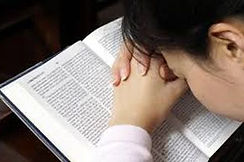
Scriptures for Study
Matthew 18:5-6, Mark 13-16 -- Jesus' attitude toward children
Ephesians 6:4, Colossians 3:21 -- Proper attitudes for parents
Psalm 32:3-7 -- Acknowledging the problem
James 5:13-20 -- The church and restoration
Hebrews 12:15 -- How to avoid bitterness
Children Isn't a Toy or a Doll in a Toy Box to be taken out to play with . . .
A child takes a toy from the toy box to play with. They play house or play like their in a war. The little girl plays like mom and gets upset at her boby and twist the dolls arm too hard and it breaks off. The little boy playing army treats his army man like his dad treats him when he comes home drunk and throws his man against a tree and it's breaks off.
The arm on the little girl's doll can be put back on and it will be like nothing happen, it's the same with the little boy's army man. It's leg can be put back on with no trouble at all with a little glue. The little boy can go back to playing with it in his war.
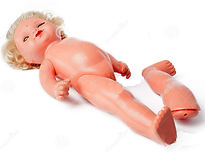

A child takes a toy from the toy box to play with. They play house or play like their in a war. The little girl plays like mom and gets upset at her boby and twist the dolls arm too hard and it breaks off. The little boy playing army treats his army man like his dad treats him when he comes home drunk and throws his man against a tree and it's breaks off.
The arm on the little girl's doll can be put back on and it will be like nothing happen, it's the same with the little boy's army man. It's leg can be put back on with no trouble at all with a little glue. The little boy can go back to playing with it in his war.
The thing with children is, they are real people and when they are broken, hurt, abused or molested, they can't be fixed as easly as a broken toy. It takes weeks, months, years and in some cases, it follows them through out their lives. Some children are broken and they never have a chance to be fixed, they are murdered to keep they from telling, and some take their own lives.

When I was a kid, a 10 years old girl from my neighborhood suddenly disappeared. According to the police, it was most likely that the girl was kidnapped on her way to school. The teachers were highly alarmed and informed the parents, discussing how children could be better protected. The police was asking for helpful information on television and in the newspapers. There were even some missing person reports pinned on trees.
But, what happens, when nobody feels responsible for a child? Many kids are not growing up in a safe environment, under the watchful eyes of their parents.
Millions of children are living on the street, fighting for something to eat and a place to stay every single day. The documentation "Cheated of childhood" shows the difficult and very dangerous situation of street children in Russia. Two boys are telling us, how they where forced to leave their families, by violent family members. Begging for money and hoping not to come across a pedophile, they are making their way through St. Petersburg. Most of the street kids are involved with criminal activities, drugs, alcoholism and prostitution. According to this documentation there are one million homeless children throughout Russia. The films "Streetwise Kids- Romania"and "Children from under ground - Mongolia" draw a similar picture. Who will ever notice, if one of those kids disappears? The film "Sold children-
Albania" teaches us, since the mid 90s about 500 children and teenagers were reported missing in Albania. In order to improve the safety of the children, the school keeps its doors locked during class, guarded by an employee. The situation is already serious in the cities, but it is even more dangerous on the countryside. A sister of a missing boy tells us her story. One day an Italian company arrives, pretending to look for oil. One week later her brother and the company disappeared at the same time.
Finally I'd like to strongly recommend you watching the documentation "lonely pack", dealing with street kids in Kathmandu. Without commentary, it is showing the daily life of children living on the streets of Nepal.

Five years later, the girl of my neighborhood was found, thanks to collaboration of an attentive citizen. Investigators found out that the girl was caged in the flat of a sex offender. Although it took a long time to find her, the police and her parents never gave up and kept looking for her. If everybody would pay more attention to the environment, I believe traffickers couldn't abduct persons that easy, without anyone noticing.
It is getting easier and easier for pedifiles to get at our children. You would never hear of gays being scoutmasters back in the day but now days they are everywhere. They can tell me all day long that gays aren't child molester. There may be those who aren't, but as much as I have worked with children, child molester jump at the chance of being among a bunch of little boys
The thing with children is, they are real people and when they are broken, hurt, abused or molested, they can't be fixed as easly as a broken toy. It takes weeks, months, years and in some cases, it follows them through out their lives. Some children are broken and they never have a chance to be fixed, they are murdered to keep they from telling, and some take their own lives.
like scouts. It would be like heaven to be able to adopt a child to molest when they want to. What would stop them from being married so they could adope a couple of little boys, one for each of them.
Children are obducted all the time, but now they don't have to take a chance, all they have to do now is ask the government for one. All they have to do is a certificat showing they are married and they can buy one or two through adobtion. There are stories of gay couples adobting little boys, having sex with them and letting their friends to borrow them.
Another way for them to obduct children is tricking them to come with them by giving them candy, telling them their mother wanted them to bring them home because they are sick or something or showing them a puppy. There is another slick way to obduct children. Watche the videos below and see how easy it is to obduct a child. This is why children can't be told enough not to talk or go off with strangers. You may not believe it, but you could have a stranger living in your home. That's right, you could have a family member you think you know, but you don't know them at all.